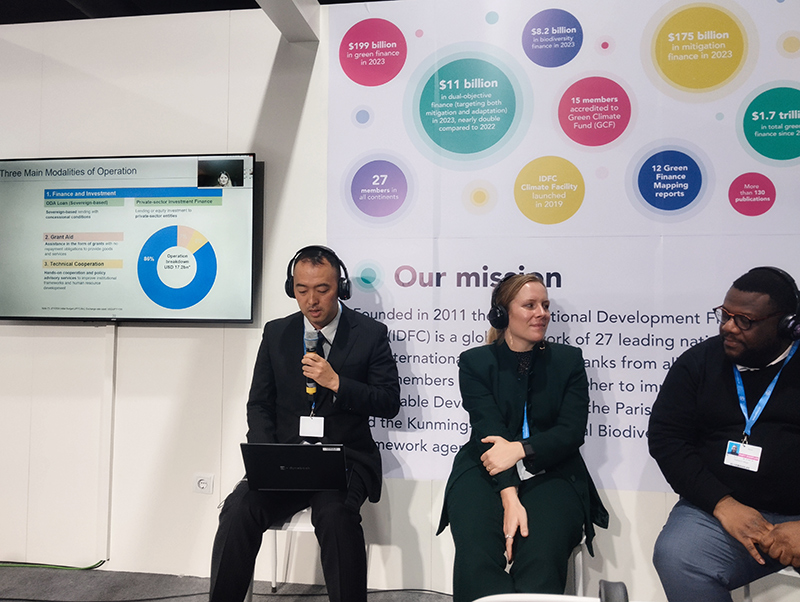【COP29 Side-Event】Supporting Climate Change Risk Management Practices: The Role of Financial Institutions Beyond Information Disclosure
Day:2024.12.16
event |
| identity | belong to | title |
|---|---|---|
| Ryo Hibiya | Environmental Management and Climate Change Group, Global Environment Department | Technical Advisor |
Date: November 19, 2024
Host: International Development Finance Club (IDFC)
Name of venue (pavilion name): International Development Finance Club (IDFC) Pavilion
| identity | belong to | title |
|---|---|---|
| Claire Echalier | Institute for Climate Economics (I4CE) | Development Finance Program Director |
| Jaspreet Kaur | Climate Policy Initiative (CPI) | Analyst |
| Remco Fischer | United Nations Environment Programme and Finance Initiative (UNEP FI) | Head of Climate Change Division |
| Natasha Chaudhary | Institute for Climate Economics (I4CE) | Principal Researcher, Climate Risk |
| Alina Mika | European Bank for Reconstruction and Development (EBRD) | Head of Environmental and Financial Systems Division |
| Nora Lambrecht | Inter-American Development Bank(IDB) | Senior Environmental and Social Officer for Climate Change |
| Amal Benaissa | Bank of Africa(BOA) | Head of Sustainability Division |
| Komlanvi Moglo | Bank of West Africa(BOAD) | Environmentalist |
| Yukichi Usui | JICA | Director, Environmental Management and Climate Change Group, Global Environment Department |
The event focused on recent findings on climate risk management as it relates to financial institutions, sharing their experiences and discussing how financial institutions can work together to better manage climate risk and how they can develop financial products that adapt to the risks their counterparties may face.

Director Usui of Environmental Management and Climate Change Group in JICA presented at the panel discussion
scroll